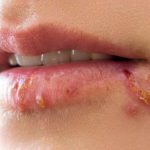
While infertility is commonly associated with women, it’s crucial to recognize that male infertility contributes to one in three IVF cycles in Australia.
In a recent blog post, we explored a literature review to investigate whether men diagnosed with male factor infertility undergo more significant psychological distress compared to fertile men or those with an infertile partner.
Our discovery reveals that regardless of the root cause of infertility, men within couples experiencing infertility exhibit heightened symptoms of depression, anxiety, and overall psychological distress. Additionally, they report a lower quality of life in certain aspects and diminished self-esteem compared to their fertile counterparts.
Recent studies indicate a global decline in sperm counts, as evidenced by research findings. Moreover, it highlights that male fertility can be negatively impacted by lifestyle and environmental factors.
Although the majority of causes of male infertility are beyond preventive measures, understanding how to maintain optimal sperm health is crucial. Explore these five actionable steps that men can take to enhance their fertility.
Try to be in the healthy weight range
Obesity is linked to hormonal changes that adversely impact semen quality, influencing factors such as the total sperm count, sperm motility, live sperm count, and the proportion of sperm with a normal shape, as per research findings.
These factors diminish the likelihood of achieving both natural and IVF conception.
The encouraging news is that the negative impact of excess weight on male fertility is reversible. Consistent engagement in physical activity and adopting a nutritious diet can contribute to weight reduction and enhance sperm quality.
Compelling evidence suggests that adopting a nutritious diet comprising fruits, vegetables, whole grains, nuts, low-fat dairy, and seafood, while limiting red and processed meats, sweets, and sweetened beverages, is associated with improved sperm quality.
Avoid recreational drugs
Engaging in recreational drug use has been linked to compromised reproductive health. Psychoactive substances like cocaine, benzodiazepines, heroin, methamphetamine, oxycodone, and ecstasy have been found to adversely impact male reproductive functions, influencing sexual drive, testosterone production, sperm generation, and sperm quality.
Although research on the connection between marijuana use and sperm quality remains inconclusive, some indications suggest that regular marijuana use may harm sperm quality and pose a risk factor for testicular cancer.
Stay clear of anabolic steroids
Certain men turn to anabolic steroids to boost their physical performance and appearance. On a global scale, an estimated one in 16 men (6.4%) use anabolic steroids at some point in their lives. Notably, male weightlifters aged 20-39 years, fighters, and security personnel emerge as some of the most prevalent users of anabolic steroids.
Anabolic steroids play a role in muscle growth and fat loss, but they also impact sexual function. This includes effects such as diminishing the size of testicles, decreasing or halting sperm production, and leading to impotence and infertility.
Research indicates that the majority of men resume sperm production within a year of discontinuing anabolic steroid use. However, a recent study focusing on men who experienced infertility due to anabolic steroids revealed that some individuals may suffer long-term damage to sperm production.
Examining men who ceased anabolic steroid usage and underwent a six-month hormone treatment to enhance sperm production, the study revealed that over half continued to produce either no sperm or very limited sperm after this duration.
Quit smoking and vaping
While we’re well aware of the detrimental effects of tobacco smoking on our overall health, there is now evidence suggesting its negative impact on male fertility and reproductive outcomes.
Over the last decade, vaping has gained popularity, particularly among young adults. With more than 500 e-cigarette brands and 8,000 flavors commercialized, the trend is on the rise. Recent evidence from animal studies indicates potential harm to male reproductive health, prompting experts to advise against vaping while trying to conceive.
Reduce exposure to environmental chemicals
In our daily lives, we encounter a variety of environmental chemicals through the products we use, the food we consume, and the air we breathe. These substances, known as endocrine-disrupting chemicals, have the potential to diminish sperm quality and contribute to fertility issues by mimicking or obstructing male sex hormones.
Avoiding these chemicals is challenging as they are pervasive in our surroundings. However, you can adopt some straightforward measures to minimize your exposure, including:
- Thoroughly rinsing fruits and vegetables
- Opting for a diet with fewer processed, canned, or pre-packaged foods
- Choose to drink from glass or rigid plastic containers instead of soft plastic bottles
- When reheating food, opt for a china or glass bowl with a paper towel or plate cover instead of relying on plastic takeaway containers or those wrapped in cling film.
To educate men on maintaining sperm health, Your Fertility, a fertility health promotion program by the Victorian Assisted Reproductive Treatment Authority, collaborated with Melbourne comedian Michael Shafar to produce informative educational videos.
This blog post has been reissued from The Conversation under the terms of a Creative Commons license.





